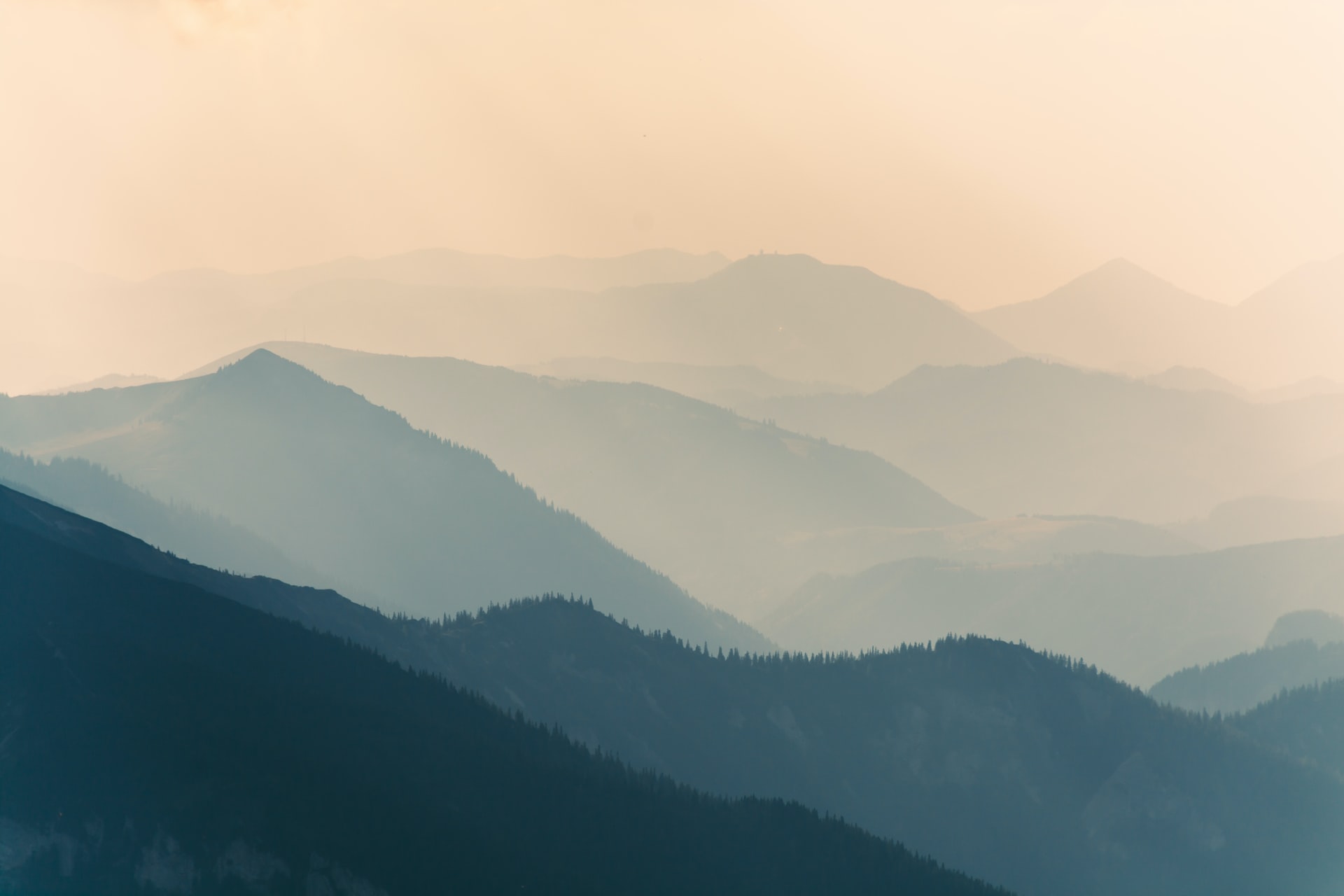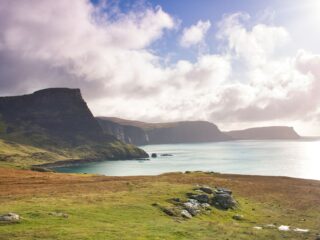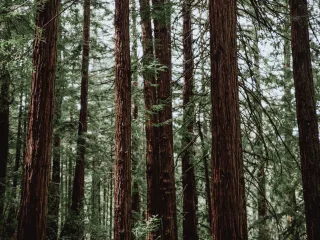It’s often said that one of the best ways to learn is through reading. Sustainability can be overwhelming for businesses and individuals alike. How did we get here? Where do we start when implementing sustainability in business? Are humans truly capable of changing the predicted course of things?
If we want to play our part in preserving and restoring the planet, it’s important to know how to navigate the expansive umbrella of sustainability. Having said that, here are some of my top picks to widen your knowledge – and for those who, like myself, simply love to read.
#1 ‘We Are the Weather: Saving the Planet Begins at Breakfast’ by Jonathan Safran Foer
Why this book is important
In We Are the Weather, Foer lends his literary voice to the fight against climate change. He cuts through the clutter and breaks down the science behind this global challenge – greenhouse gases, animal agriculture, and key demographic changes that are simultaneously in play. Foer tells the story of climate change in a way that’s not only educational, but also entertaining, emotional, and accessible.
The impact
The book uses past examples (e.g. World War II, the civil rights movement) of collective sacrifice to show us that even though we behave as individuals, a shared belief and the sum of positive actions can enable widespread change. He weaves in a personal family narrative, and addresses the everyday doubts and sentiments that actually inhibit change.
True to its title, the core argument is that to help save life on the planet, there needs to be a shift away from meat and dairy, towards plant-based diets. “Changing how we eat will not be enough on its own to save the planet, but we cannot save the planet without changing how we eat.”
Watch an interview with the author here:
#2 ‘Cradle to Cradle: Remaking the Way We Make Things’ by Michael Braungart and William McDonough
Why this book is important
In the 1990s, German chemist, Michael Braungart, and American architect, William McDonough developed Cradle to Cradle® (C2C) as a new approach to design. They co-founded the Cradle to Cradle Products Innovation Institute in 2010.
Cradle to Cradle presents this philosophy against the prevailing mindset that industry only does harm. Instead of minimizing the bad (ex: reducing plastic packaging for food), cradle-to-cradle proposes the question, “how can we create a product that actually does good throughout its entire life cycle?”
The impact
Contrary to the conventions of the Industrial Revolution, which has led to today’s levels of waste and pollution, Cradle to Cradle urges us to reconsider design and the notion of waste. Much of the book discusses inspirations taken from nature, introducing concepts such as eco-efficiency and eco-effectiveness; and it offers a visual tool for sustainable commerce design. While C2C involves a reshuffling of resources, the book is a call for a paradigm shift.
Watch an interview with the author here:
#3 ‘Let My People Go Surfing: The Education of a Reluctant Businessman’ by Yvon Chouinard
Why this book is important
Yvon Chouinard made headlines last September when he announced that he would be giving away ownership of Patagonia, effectively losing his billionaire status – all in part of a greater effort to combat climate change. Originally, Let My People Go Surfing was written with the company’s employees in mind. In actuality, it’s also part autobiography. It’s an inspiring read for leaders, entrepreneurs, and outdoor lovers, giving them a peek into the mind of the company’s founder.
The impact
“Quality-driven”, “environmentally-conscious”, “politically-active”, and “socially-aware”. These are few of the many attributes that one could use to describe Patagonia.
In 250 pages or so, we learn a bit more about the man behind the brand. He was a terrible student who struggled with social skills and had few friends growing up. As a result, he looked elsewhere to find comfort, leading him to develop a lifelong relationship with nature. Chouinard shows us how his life influences the way he does business. “We have been profitable in years when we grew only a few percent by increasing the quality of our product, maximizing the efficiency of our operations, and living within our means.”
What draws in many people is the authenticity of his story: using the beliefs of doing good and taking adventures, and making them the heart of his business.
Watch the trailer here:
#4 ‘21 Lessons for the 21st Century’ by Yuval Noah Harari
Why this book is important
Ten years ago, Yuval Noah Harari was an academic historian that the majority of us probably wouldn’t have known. The success of Sapiens and its sequel Homo Deus, brought his name into the spotlight and showed us his capacity as a thought-leader. 21 Lessons for the 21st Century, is a standalone book that covers 21 global problems, ranging from climate change to immigration.
The impact
Unlike the other items in this list, 21 Lessons goes beyond sustainability. It doesn’t zoom in on deforestation, fast fashion, circular processes, or animal farming. And if you look at reviews, a common criticism is that the book falls short of offering solutions to the problems it raises.
However, what Harari manages to do is remind us that many of today’s most urgent issues are interconnected and sometimes interdependent. More importantly, he sets the base for us to be aware and encourages readers to think, offering clarity and perspective on what is happening in a world filled with endless (and sometimes irrelevant) amounts of information. After all, good decision-making – the kind that the world needs – starts from improved awareness.
Watch an interview with the author here:
#5 ‘The Sixth Extinction: An Unnatural History’ by Elizabeth Kolbert
Why this book is important
Like labels and certifications for sustainable brands, prizes in literature add credibility to an author and his/her work. The Sixth Extinction looks at the first man-made extinction to take place in Earth’s 3.7 billion years of existence. The Winner of the Pulitzer Prize in 2015, you’ll quickly understand why.
The impact
It’s no secret that we, the people, are our own threat to our survival and that of life on earth. Rising global temperatures, increasingly unpredictable natural disasters, dying coral reefs, and food insecurity, are all very real negative consequences of human activity.
Kolbert takes us through her field research in some of the world’s most important ecosystems like the Great Barrier Reef and the Amazon Rainforest. She shares in-depth case studies of dying species such as the Sumatran rhino and the Panamanian golden frog. The Sixth Extinction is a well-written and well-researched book that combines history, science, and personal stories.
Watch the trailer here:
The list of books on sustainability – and all its dimensions – is endless. And the more urgent it becomes, the more is written about it, and hopefully, the more people are compelled to change. Let me know what you think or feel free to share some of your favorites in the comments below.
And if you’d like to tell your sustainability story in a convincing way, then Akepa is a sustainable marketing agency that can help.



Leave a Reply